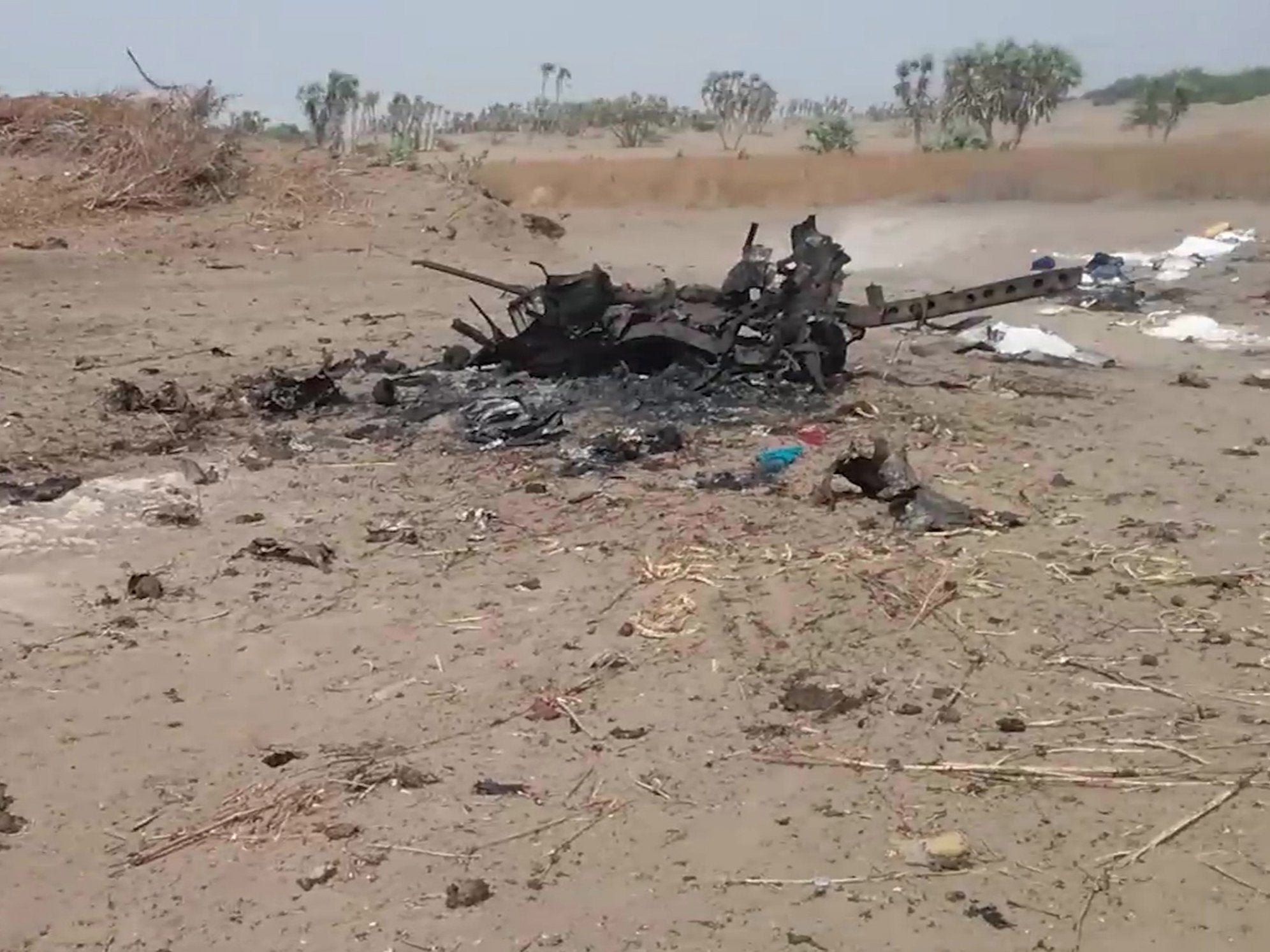Saudi-led coalition air strike in Yemen kills 22 children
UN condemns killings as human rights organisations call on UK, US and France to demand action

Saudi-led coalition airstrikes in Yemen have killed at least 30 civilians in the last two weeks, the UN humanitarian chief has said.
An attack on Thursday killed at least 22 children and four women fleeing fighting in the Al Durayhimi district, which sits south of the port city of Hodeidah, said Mark Lowcock, the under-secretary general for humanitarian affairs.
Another strike in Al Durayhimi on Thursday killed four children, he added.
In a statement, Mr Lowcock echoed the call for “an impartial, independent and prompt investigation into these most recent incidents” issued by the UN secretary-general, Antonio Guterres.
It comes weeks after coalition airstrikes killed at least 51 people including 40 children when they hit a bus in a busy market in Saada governorate in the north of Yemen.
The attack was condemned internationally and the coalition said it would investigate.

Henrietta Fore, executive director of the UN children’s agency Unicef, said she hoped the Saada attack “would be a turning point in the conflict” but the attacks on Thursday “indicate that it was not.”
“I — once again — call for the warring parties, those who have influence over them, the UN Security Council and the international community to take action and end this conflict once and for all,” Ms Fore said in a statement.
“The lives of thousands of vulnerable children across Yemen must be a priority for all.”
Yemen’s conflict began in 2014, when Houthi Shia rebels toppled its internationally-recognised government and took over the capital of Sanaa.
A Saudi-led coalition allied with the government has been fighting the Iranian-aligned Houthis since 2015.
Civilians have been the major victims in the conflict, which has pushed Yemen to the brink of famine, crippled the country’s health system and killed over 10,000 people.
While the Houthis blamed Thursday’s attack in Hodeida on the coalition, state media of the United Arab Emirates – a key coalition member – disputed the claim and said the rebels launched the attack, killing one child and injuring others.
Although neither side’s claims could be independently verified, Mr Lowcock’s statement puts the blame squarely on the coalition.
His condemnation follows the release of a 90-page report by Human Rights Watch on Friday accusing the Saudis and others of failing to conduct credible investigations into alleged war crimes committed in Yemen.
Mr Lowcock stressed that the humanitarian operation in Yemen is currently the largest in the world, with three-quarters of the population in need of aid. In 2018, he said, the UN and its partners assisted more than eight million people.
He also expressed deep concern at the proximity of attacks to humanitarian sites, including health facilities and water and sanitation operations.
“The parties to the conflict must respect their obligations under international humanitarian law and those with influence over them must ensure that everything possible is done to protect civilians,” he said.

Frank McManus, Yemen country director for the International Rescue Committee, a New York-based humanitarian organisation working in over 40 countries, warned attacks like those in Saada and Hodeida “will undermine the potential for progress” in peace negotiations in Geneva between the Houthis and the government scheduled to start on 6 September.
“The international community must demand action — an immediate ceasefire should be agreed upon and a full, independent investigation into these events must be undertaken,” Mr McManus said in a statement.
“But thus far, international silence in response to violations in Yemen has been deafening and it is allowing wanton disregard to civilian life to become the new normal in conflict.”
He called on the United Kingdom, United States and France to use their leverage to alleviate suffering, saying: “Yemen, and Yemenis, cannot wait.”
Join our commenting forum
Join thought-provoking conversations, follow other Independent readers and see their replies
Comments
Bookmark popover
Removed from bookmarks